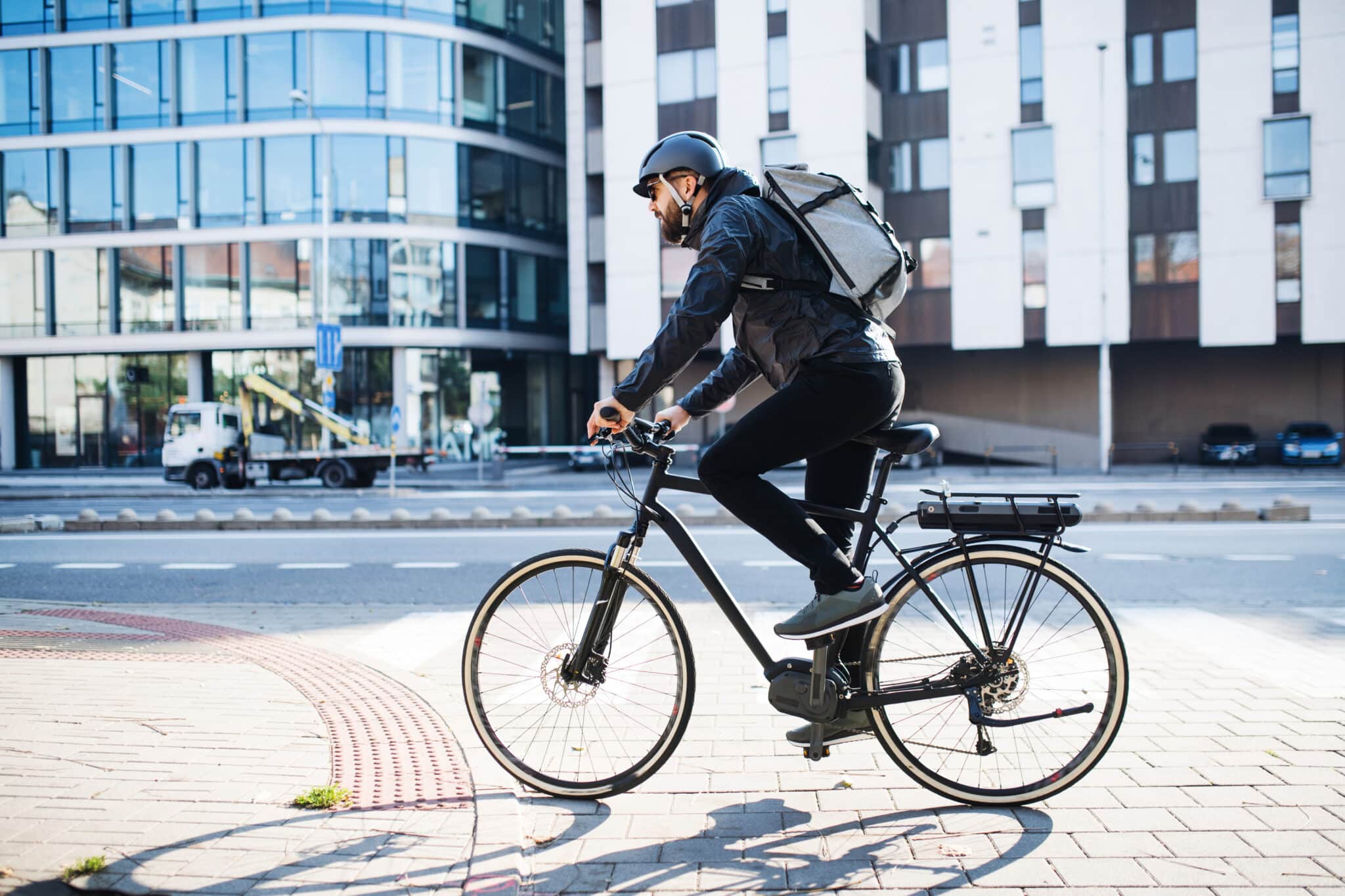Hallgasd meg az angol szöveget, majd válaszolj a kérdésekre magyarul!
- Mire kell vigyázzon Colin biciklizés közben és miért?
- Mi segíthetne ezen a helyzeten?
- Mi bosszantja Colint naponta?
- Mi szól más közlekedési eszközök használata ellen?
- Mi az, amit élvez a biciklizésben? Mit érez közben?
- Miért megy fel időnként a járdára?
- Miért irigykedik a nő Colinra?
- Mivel igyekeznek népszerűsíteni a biciklizést?
- Mennyire népszerű ez az esemény?
- Mire lenne szükség Colin szerint?
- Milyen veszélyekkel találkozik az utakon?
- Mihez nem tud hozzászokni?
Cycling in the city
Woman: I heard you ride your bike a lot these days, Colin.
Man: Oh, yes. Every day I cycle to work.
W: And is it easy to get around the city by bike?
M: Yes, there is a cycle path that goes right around the city, and various shorter ones within it.
W: So, you don’t have to worry about road traffic when using them?
M: No, as these paths are up on the pavement rather than in the road, so it’s pedestrians not motorists I have to be careful about as they tend to wander onto the cycle paths. Some people walk along them as if they had every right to.
W: Perhaps the authorities could do something to make pedestrians aware what it means, how it works.
M: Absolutely. You know, every day I get annoyed as I’m shouted at by people who still haven’t caught on that it’s me that has the right of way, not them.
W: Wouldn’t be it easier to take the bus or the underground?
M: Maybe it would but there’s no pleasure in that and they both get so crowded. Besides, on the bike I enjoy feeling the wind in my face and a sense that the city’s mine, I can go where I want, when I want.
W: But the network of cycle paths doesn’t cover the whole city, does it?
M: No but in those places, I must admit I can even get up on the pavement to avoid traffic lights or go the wrong way down one-way streets. And of course, cycling is just so healthy, I’ve never felt fitter.
W: That’s good! I’m really envious of you. It could be good for others to follow your example.
M: Definitely. I hope they will and I’ve got reasons to hope. For instance, a couple of years ago someone in the town hall came up with a nice idea to promote cycling in the city.
W: What was that?
M: On the first Sunday of every month, a number of the main streets are closed to traffic for a few hours and are given over to cyclists.
W: And does the idea work?
M: Yes, it’s gradually growing in popularity, and there’s a real festival atmosphere now, with thousands of cyclists of all ages turning out every month. It’s a good start but there’s a long way to go. We need a whole series of additional measures to make the roads more cycle-friendly. Sometimes you come across some really nasty drivers. I can by cycling along when some car or van cuts in front of me or comes up right close to me almost touching my back wheel. Sometimes I lose my balance and nearly fall. They seem to resent me for being there and get impatient if they have to slow down for me. I got beeped at all the time, it’s very unpleasant. I couldn’t get used to it. But it won’t stop me riding my bike and I hope things will get better.
source: YouTube/Ratito-Pro
Key:
Cycling in the city
- A gyalogosokra, mert hajlamosak a bicikliúton menni.
- Ha a hatóságok tudatosítanák a gyalogosokban, hogy a bicikliút mit jelent, hogyan működik.
- Rákiabálnak, akik nem fogták fel, hogy neki van elsőbbsége.
- Nincs benne élvezet és zsúfolt.
- Ahogy a szél az arcába fúj. Mintha övé lenne a város, oda megy ahová és amikor akar.
- Kikerülni a közlekedési lámpákat és az ellenkező irányba menni az egyirányú utcákban.
- Mert soha nem érezte még ennyire fittnek magát.
- A hónap első vasárnapján lezárnak pár főutat a biciklisek számára.
- Fokozatosan nő a népszerűsége.
- További intézkedésekre, hogy az utakat bickilibarátabbá tegyék.
- Az autósok bevágnak elé vagy túl közel mennek hozzá.
- Ahhoz, hogy állandóan rádudálnak.


